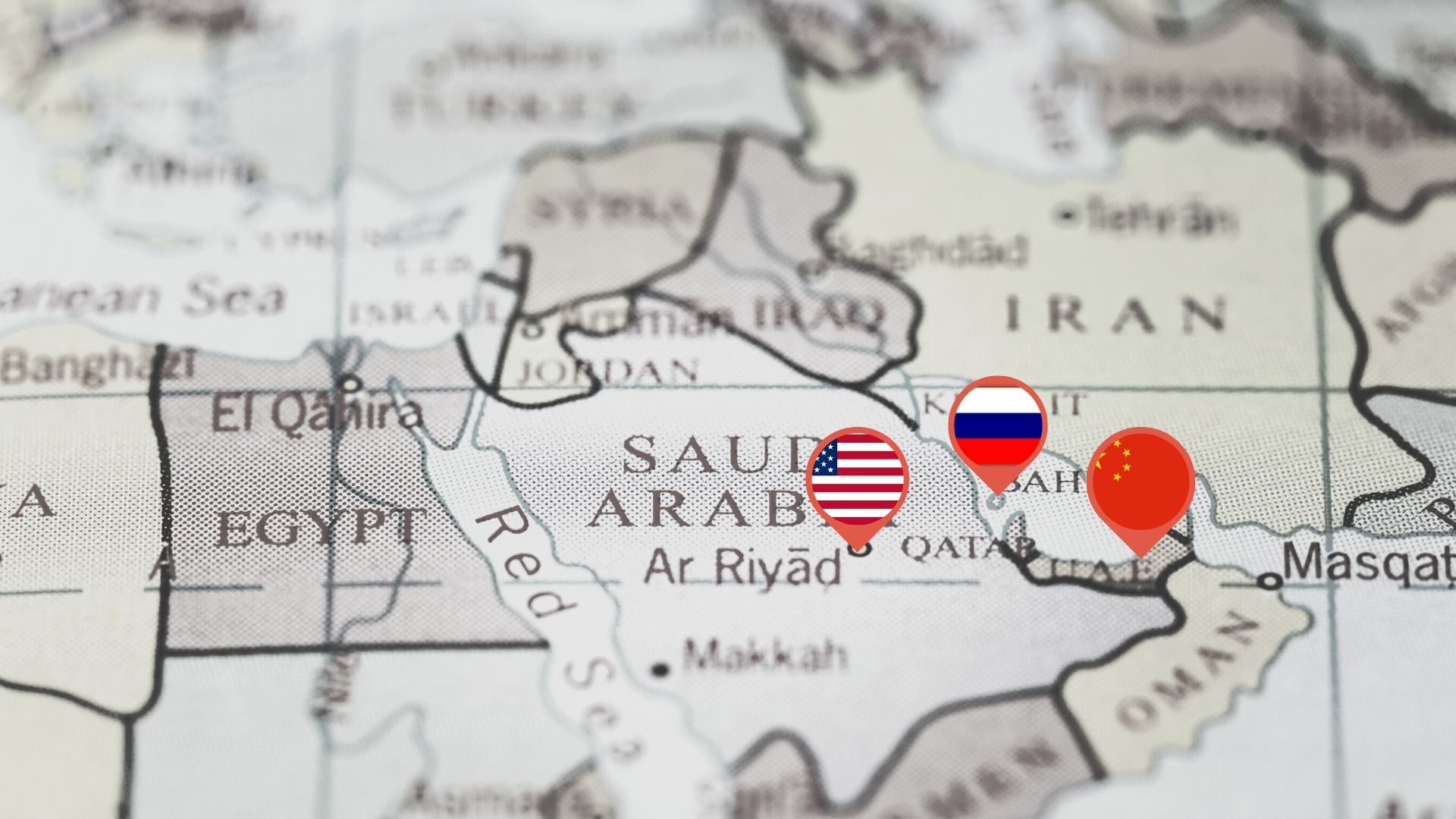Publications
Special Publication, June 13, 2022
Many Arab countries seek to improve their bargaining position vis-à-vis the United States and to expand their room for political maneuver, as reflected against the backdrop of the war in Ukraine and the accompanying energy crisis. In general, the goal of these Arab countries is to balance their need to maintain as close a relationship as possible with the United States, their traditional ally, with the potential benefit they see to cooperation in various areas with powers such as China and Russia. This cooperation, especially with China, signals an attempt to establish parallel relations with powers that are United States competitors, with the aim of diversifying future support. To some extent, Israel is capable of influencing the direction in which Arab countries are moving, which is of considerable importance for Israel’s strategic situation.
Arab countries that were decidedly part of the American-Western sphere of influence are conducting their foreign relations with an increasing degree of independence, thereby intermittently challenging their relations with the United States. Their objective is to improve their situation, diversify their options, avoid damage, and/or enhance their influence. This policy, a permanent instrument in their political toolbox, was designed so that countries such as Russia and China serve as an additional source of political, economic, and even military support, and at the very least, this exerts pressure on the United States to guarantee their security. This policy on the part of countries having ties with Israel may suggest the change that may be underway in the US standing in the region, and mandates Israel's attention. The question therefore arises to what extent this amounts to "merely" an attempt by these countries to improve their bargaining position and expand their political room to maneuver, or whether they also aim to establish a strategic relationship with a power other than the United States. This article focuses on the motives and implications of the effort by Arab countries to diversify their support, by examining trends in these countries' military procurement, Arab public opinion on this question, and evidence of strategic cooperation between Arab countries and China and Russia.
A. Trends in Military Procurement
American-manufactured arms have been dominant for many years among most Middle East countries (excluding Syria and Algeria, which are completely reliant on Russia for weapons, and Iran, under a UN-enforced arms embargo). Today, several actors previously inclined to be clearly identified as pro-American and to procure mainly American and European-manufactured arms are acquiring advanced weapons and technology from Russia and China, despite the American sensitivity on this matter.
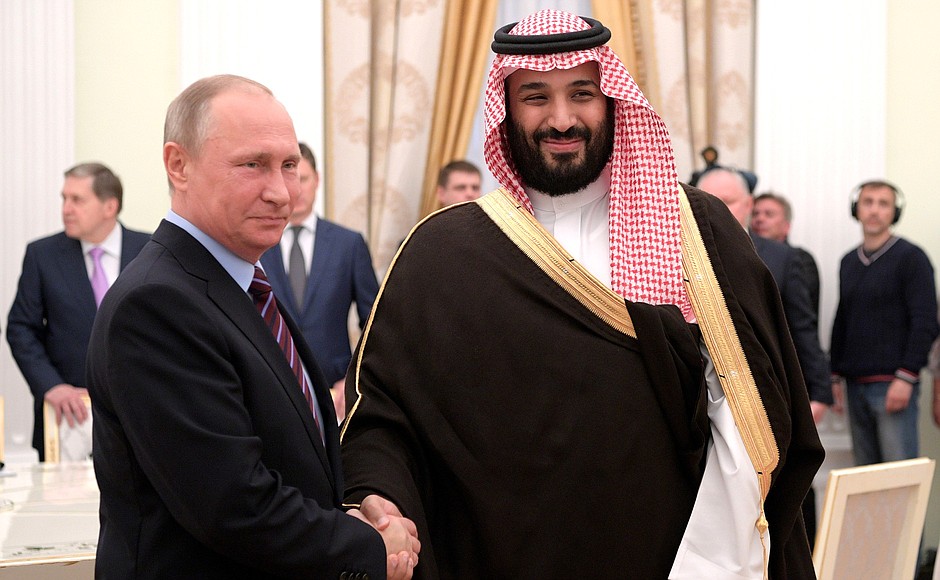
One third of all the arms manufactured in the world are designated for the Middle East, which includes four of the world's 10 largest importers. According to the Stockholm International Peace Research Institute (SIPRI) database, the leading weapons importer in the Middle East (and the world, together with India) is Saudi Arabia, which is behind 11 percent of global military procurement, followed by Egypt, Qatar, and the United Arab Emirates (UAE). The United States is still the main supplier of arms to the Middle East, but its status in this context has declined slightly. In 2012-2016, United States arms exports to the region accounted for 47 percent of all American arms exports, dropping to 43 percent in 2017-2021.
- Russia: 20 percent of total Russian arms exports in 2017-2021 were designated for the Middle East, mainly to Egypt and Algeria. Despite a fall in the volume of sales, the world's second largest arms exporter greatly expanded its supply of weapons (by 723 percent) to Egypt, Russia's third most important customer. Cairo increased the volume of its arms imports by 73 percent in comparison with 2012-2016, putting it in third place in the world after India and Saudi Arabia in the volume of weapons imports. Despite its economic situation, Egypt has boosted its arms imports in the past decade, relying on loans and grants, in part from the Gulf states, in addition to American foreign aid. Russia has become Cairo's main weapons supplier in the past five years, during which Russia supplied 41 percent of all the arms imported by Egypt, including important platforms: an agreement was signed for the supply of Su-35 planes (France accounted for 21 percent of the arms procured by Egypt and Italy – 15 percent). During this period, Russia also became the third most important arms supplier to UAE, supplying it with systems such as Pantsir. It was also reported that Russia and UAE were negotiating the procurement and joint development of warplanes (countries also publicly announce their procurement plans in order to exert pressure on suppliers to lower their prices, or in an effort to pressure the United States to supply them with similar systems). In January 2022, the UAE procured an anti-missile and anti-drone system based on Russian know-how (the S-400) from South Korea in response to Houthi attacks against UAE territory.
- China: The United States expressed opposition to the development of security ties between China and the Gulf states. The chief US concern is that China could gain access to advanced American technology, given the negotiations for the sale of F-35 planes to the UAE. China has remained a secondary player in weapons supplies, focusing on the supply of niche systems that the United States is unwilling to supply, among them advanced drones (due to the American commitment to Israel's qualitative military edge and weapons exports limitation conventions, such as MTCR), or, for example, anti-missile/anti-drone defense systems. It was reported recently that China had supplied Saudi Arabia with laser-guided anti-missile systems. It was also reported that China would sell 12 L-12 light attack/training aircraft to the UAE (with an option for 36 more), despite United States objections to the transaction (the UAE has also signed an agreement to procure 80 French Rafale planes, following emerging difficulties in the F-35 transaction). It was likewise reported that China's construction of a military facility in the UAE had been halted due to American pressure.
Arab countries procure arms from various suppliers other than the United States for varying reasons. Beyond the American refusal to sell certain weapon systems or a basic desire to avoid reliance on a single supplier, many Western countries are linking weapons sales to internal affairs, especially human rights. This linkage, in which Russia and China have no part, is extremely irritating to Arab countries. For example, the murder of journalist Jamal Khashoggi caused a temporary halt in Saudi imports of Western arms – a gap that companies from China and Russia were eager to fill.
Furthermore, in addition to advanced platforms exports, China and Russia are willing to cooperate in research and development, and to establish weapons manufacturing facilities in Arab countries. In this framework, China and Saudi Arabia signed agreements in 2017 and 2022 to develop and manufacture drones. The UAE and Saudi Arabia are asking for access to technology because they want to establish their own national arms industries. In 2017, Saudi Arabia founded a government corporation (SAMI) for the purpose of increasing its independent arms production capacity to 50 percent by 2030 (its independent production capacity currently amounts to only 2-7 percent of total procurement spending). That both Beijing and Moscow have influence on Iran may also play a significant role among the Arab Gulf states seeking to influence Iran's behavior.
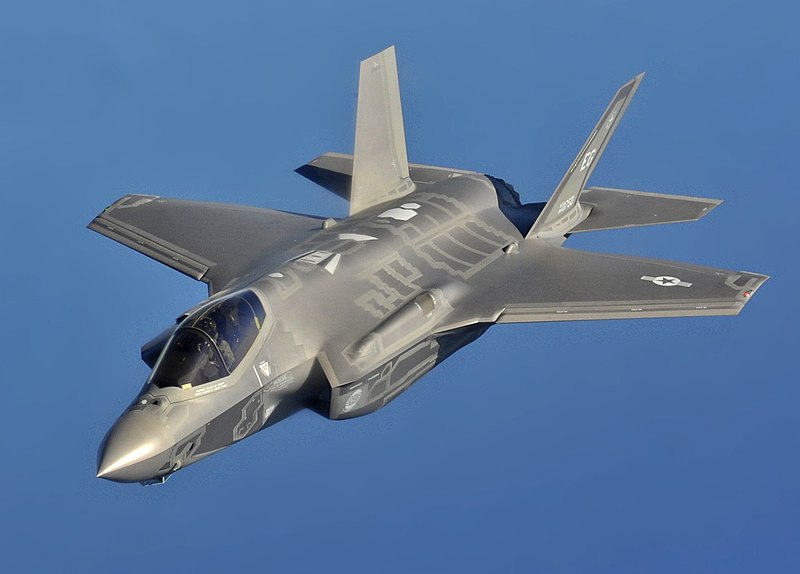
Diversification of military procurement sources, however, is not always a clear preference, because it imposes a burden on armies. Procurement of weapons from different sources requires compatible parts, special training, a specific maintenance system, and so on. The link to CENTCOM, the American military presence, the joint headquarters, and military exercises all require connectivity and integration. The main motive for diversifying procurement therefore lies in the political sphere. Arms procurement not only helps build political bridges; it is sometimes designed specifically for this purpose. For example, since they gained independence, the Gulf states have used the procurement of advance weapons, which they are sometimes unable to operate optimally, to strengthen their ties with external forces in order to bolster their national security. Beyond the development of military capabilities, defense procurement is designed for internal needs and competition for prestige and status in the inter-Arab theater.
B. Strategic Cooperation
There is much evidence of strategic cooperation between a number of Arab countries and Russia and China in recent years, including in nuclear and missile affairs. While Russia has focused on aid for the Egyptian civilian nuclear program, China has stepped up its missile and nuclear cooperation with Saudi Arabia. The Saudi strategic missiles arm is based on missiles supplied by Beijing in the 1980s (Dong Feng-3 missiles, which were displayed publicly for the first time in a Saudi military parade in 2014) and more advanced missiles sent in a number of deliveries, starting in 2018. Beyond the supply of the missiles themselves, it appears that China is involved in transferring missile technology to Saudi Arabia. American intelligence leaked reports about at least two facilities detected in the kingdom for assembling solid fuel surface-to-surface missiles, apparently constructed with Chinese aid. Beyond its involvement in the missile field, it appears that China is aiding Saudi Arabia in gaining control over the nuclear fuel cycle. In 2020, Chinese aid in the construction of a facility in Saudi Arabia for extracting yellow cake from uranium ore discovered in the kingdom was reported. What is special about the Saudi nuclear program is its plentiful resources and its simultaneous progress in different directions – commercial, research, and possibly also military – for risk management and in response to the Iranian nuclear program. There are large gaps in know-how in most of the relevant spheres caused in part by an absence of transparency and Saudi concealment efforts. The desire to rely on the Chinese and others is also influenced, inter alia, by doubts concerning the reliability of American support.
Some of the Arab countries have developed partial supports by establishing ties with additional countries that are not major powers. Over the years, Saudi Arabia (and the UAE) has developed a strategically significant support in Pakistan. Indeed, a special relationship has developed between the two countries, centered around a reciprocal transaction: Saudi Arabia regards Pakistan as its strategic home front, an important asset in restraining Iranian influence, and a response to Riyadh's search for a non-Arab ally. For its part, Pakistan receives large-scale economic aid, influence in the Gulf theater, and an important role in preserving the Islamic holy places of Mecca and Medina. Saudi Arabia and Pakistan have been able to overcome a number of disputes between them in recent years, among them the war in Yemen and the boycott of Qatar, by maneuvering between various pressures, extending their special relationship, and making sure that the strategic cooperation between them – both conventional and nuclear – remains covert. There are several possibilities in this regard: a promise of a nuclear umbrella, transfer and preservation of technical knowledge, training and drilling Saudi teams in Pakistan, financing and/or cooperation in uranium enrichment in Pakistan, and stationing of Pakistani nuclear weapons in Saudi Arabia under a Pakistani chain of command and control.
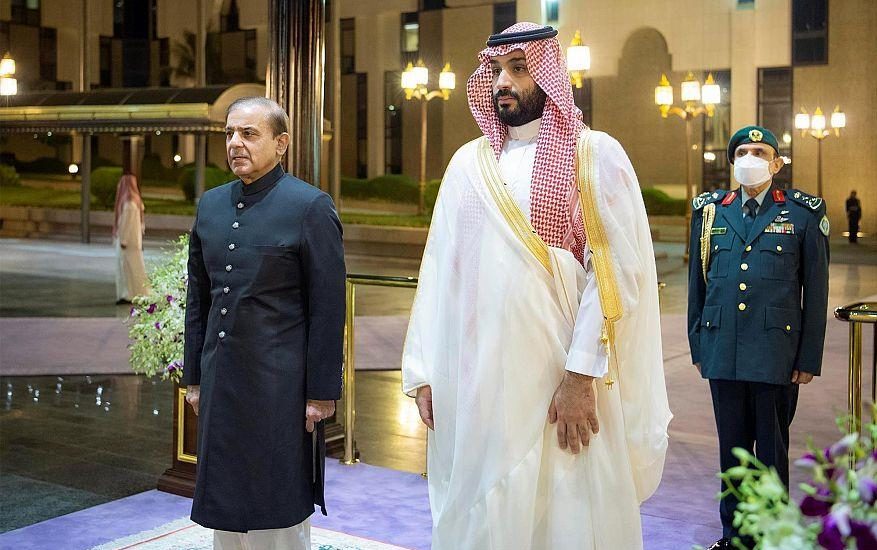
C. Public Opinion in Arab Countries
An analysis of Arab public opinion also indicates erosion in the status of the United States in the region and a significant wish to diversify support. Despite the structural difficulty in sampling public opinion in autocratic countries, the Arab upheaval of a decade ago has stimulated renewed awareness of the need to understand the direction of Arab public opinion. Arab public opinion is measurable and important, including, and perhaps primarily, to the regimes themselves. The database of the Washington Institute for Near East Policy indicates (surveys conducted between 2017 and 2022) that support in Arab public opinion for relations with Russia and China, together with the relations with the United States, has increased.
Recent surveys in Egypt (March 2022) show that Egyptians oppose Russia's war activity in Ukraine, and blame it for the food crisis afflicting them. Half of Egyptians, however, regard good relations with Russia as essential to Egypt. Furthermore 46 percent of Egyptians consider Russia a country that can do a better job of protecting them from external threats, while only 12 percent of Egyptians hold this opinion of the United States. The survey findings also show that 30 percent of Egyptians regard the supply of arms as the most important proof of external support for their country, that 43 percent believe that the United States cannot be trusted at this time, and that China and Russia should be regarded as partners. This public sentiment in Arab countries toward the United States is not new, and stands in stark contrast to the fact that the United States is still the main arms suppliers to these countries.
A survey conducted in Qatar in November 2021 showed that 56 percent of Qataris hold the same view as the Egyptians. In December 2021, 50 percent of the public in the UAE described relations with the three main powers – the United States, China, and Russia – as equally important, and similar views were voiced in Kuwait. Surveys conducted in the Gulf in March 2020 showed that half of the public in Saudi Arabia, UAE, and Kuwait viewed the United States as an unreliable partner. Public evidence of the closer relations between Arab countries and China can also be found in statements by the leaders on both sides, reciprocal visits, and cooperation in many soft spheres, headed by economics, technological cooperation, and culture. These views on the status of the United States in the region are also expressed by Arab pundits and the Arab press, which is regarded to a great extent as reflecting the regimes' views.
Summary
This article highlights an emerging trend among Arab countries toward diversification of their support, and urges systematic monitoring in an area that directly affects Israeli national security. Israel has an interest in Arab countries maintaining a strong pro-American orientation, and to some extent is capable of alleviating tension and mediating between Washington and a number of Arab countries.
Even though most Arab countries still regard their relations with the United States as a key element in their security, they are troubled by the decline in American attention to their security problems. The ties with Beijing and Moscow, therefore, are useful to them, at the very least as a means of both exerting pressure on the United States to pay greater attention to their security concerns and expressing dissatisfaction with American policy on Iran and the administration's agenda, including sensitivity to matters such as political freedom and human rights. At the same time, these ties may also well be a supplement to ties with the United States in the long term. It is possible that a slow and gradual alienation from the United States is involved. This might run counter to the emerging trend toward regional alliances between Israel and several of its neighbors forming under American sponsorship.
Where the three indices are concerned – military procurement, strategic cooperation, and trends in public opinion – it appears that the latter two more clearly indicate a tendency toward future diversification of support. At the same time, military procurement is also designed to diversify political support. This is particularly acute in the Arab Gulf states, given the singular objective of the arms trade, which is not built on supply and demand. It is not consumed in peacetime – it erodes and loses value. Its main purpose is to demonstrate power, deterrence, and readiness for a crisis. It is a combination of a life insurance policy and a yacht: the insurance policy is designed for an emergency, while the yacht is designed for show and deterrence. This distinction is important when assessing procurement by countries that are in an economic crisis, such as Egypt. Important questions arise from this case, such as whom the Egyptians are trying to deter and which emergency situations are anticipated in a country that has a peace treaty with Israel.
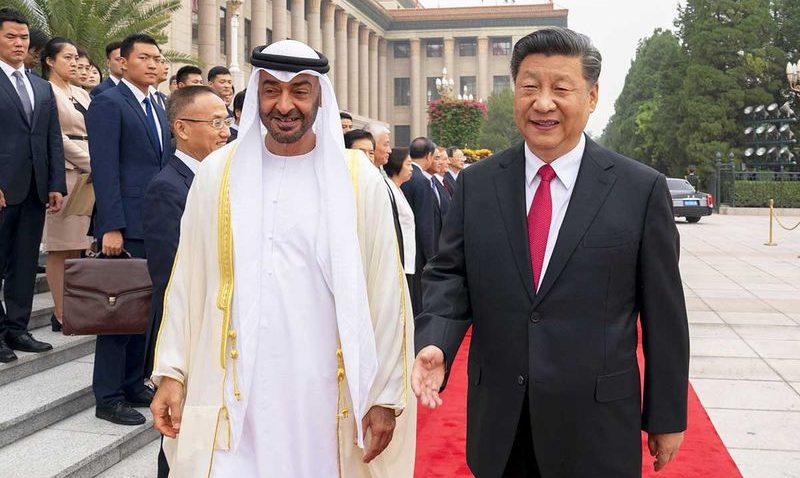
Most Arab countries recognize that in the near future China and Russia are no substitute for the United States and will not come to their defense in time of need. The demonstrated "neutrality" by some of them, however, with respect to the war in Ukraine, for example, is liable to indicate a devaluation in the status of the United States in the region from the perspective of its traditional allies. An open question in the context of the war in Ukraine is to what extent Russia's difficulty in achieving its military objectives and in its military performance will affect the willingness of Middle East countries to deepen their security ties with it. Nevertheless, hedging risks and being at the focus of competition between the major powers is regarded by some Arab countries as an effective way of improving their bargaining position vis-à-vis the United States, expanding their room for political maneuver, and signaling to the United States that they are not in its pocket. This stood out in the initial refusal by the Gulf states to increase their oil and gas production at the request of the United States, a request sparked by the war in Ukraine and Washington's effort to lower energy prices in the first half of 2022.
The competition between the major powers and the transition from a unipolar world to a bipolar or multipolar world is dynamic in nature, and affects all of the system’s small players, which are forced to adapt themselves to the changing circumstances and to some extent hedge their risks. Thus, with which side would specific countries in the Arab world align when they are forced to choose and are presented with a dilemma in deciding whether they should side with the United States or China? As a rule, Arab countries, especially the Gulf states, try to avoid taking sides, and are worried about becoming a theater of conflict between the major powers. They are striving as much as possible to maintain proper relations with all parties. The United States, however, is showing less and less patience with the closer relations between these countries and China, as also reflected in Chinese penetration of the Gulf in 5G technology, the acquisition of companies, and the development of key national infrastructure.
On the eve of President Biden’s important visit to the Gulf, which is perceived as an achievement for their hedging strategy, the Gulf states are striving to revert to the previous equation governing their relations with the United States – oil in exchange for security. They will cooperate in regulating oil prices, while the United States will be more attentive to their security needs. This is more than disappointment with United States policy in the Middle East on the part of the leaders of the Gulf states; it involves the profound realization that the needs and objectives of the United States are elsewhere, and that the countries must adapt themselves to this changing policy, including the consolidation of political and military cooperation with other powers, i.e., the diversification of support. In contrast with the past, some of these leaders are no longer afraid to state this publicly.
Diversification of military procurement sources is traditionally designed for political needs, at least in the Gulf states. Strategic cooperation between a number of Gulf states and China and an analysis of public opinion in the Arab world also support the assessment that these countries seek gradually to consolidate parallel relationships with powers that are in competition with the United States.
The Chinese involvement in the Gulf does not match that of the United States, but it indicates a trend toward closer relations between Beijing and the Arab Gulf states, and possibly China's wish to exploit cracks in relations between Washington and its partners. Even disregarding the need of countries in the region to hedge their risks in order to maximize their bargaining power or to acquire capabilities that the United States is unwilling to provide, China's already large role in the Gulf economy is projected to grow, and this is a significant variable that also affects other spheres in the array of cooperative efforts between the parties. For Arab countries, much more than pure economics is involved, not to mention that China is a key customer for oil from the Gulf states (about 90 percent of the oil from the Gulf is designated for markets in Asia). As they see it, the connection with China is essential for preserving economic stability and their ability to carry out reforms and meet essential development targets, such as Vision 2030 in Saudi Arabia, Vision 2035 in Kuwait, and Vision 2040 in the UAE.
This article, presenting empirical data wherever possible, addresses the assessment that the United States is reducing its involvement in the region. This is a matter of great importance for Israel, which has an interest in identifying the direction the Arab world is headed, or at least important policies therein. It is naturally difficult to include all Arab countries in this analysis, and even the Gulf states are not a monolithic group. Follow-up research on the subject is called for to examine whether diversification of support exists in softer spheres, such as scientific and technological cooperation, and to track American attempts to thwart efforts by specific countries to cooperate with China and Russia – where these efforts succeeded and where they failed.
Policy Recommendations
- In the nuclear area, Israel cannot remain indifferent to evidence of nuclear development in Saudi Arabia and must improve the intelligence tools at its disposal in order to facilitate better oversight in this context. Israel, which has considerable joint interests with Saudi Arabia, should also act to conduct a professional dialogue on the subject with its partners in the United States and Europe. Especially where nuclear development is concerned, Israel should make the matter a priority in order to strive to avoid strategic surprises, including by its regional partners.
- In the field of conventional weapons, Israel has to some extent ignored the military buildup in recent years by some Gulf states, which is eroding its qualitative military edge. Israel should therefore step up its scrutiny of the advanced weapon systems, both Western and others, reaching the Middle East.
- The extent of Saudi military procurement, and especially that of Egypt, whose military buildup in recent years exceeds expected proportions, particularly in view of the country's economic situation and its improved relations with Israel, is worthy of attention, due to the possible threat it entails.
- Diversification of support by Arab countries and the influence of major powers other than the United States in the Middle East directly affects substantive Israeli interests, and should be a focus of a strategic dialogue between Israel and the United States and important European countries, particularly Germany, France, and Britain. In this context:
- The possession by these countries of American weapons, even advanced ones, is preferable, in order to keep them in the American camp and to avoid pushing them into the arms of China and Russia. The presence of non-Western weapons in Arab countries having good ties with Israel, however, is also likely to be somewhat advantageous for Israel, because it may give Israel access to systems in the hands of its enemies.
- The relative military weakness demonstrated by Russia in the war in Ukraine may constitute an opportunity for the Western countries to strengthen their connection with several Arab countries that have stepped up their ties with Moscow in recent years, although there are Arab countries that regard the case of Ukraine as an indication of the West's weakness in standing by its allies.
- It should be considered whether, and to what extent, quiet Israeli aid for the purpose of consolidating technological-military capabilities in countries in the region that are friendly to Israel can help deter some of them from being lured into cooperation with Russia and China.
_____________________
** The authors thank Daniel Rakov and Tomer Barak for their helpful comments.



